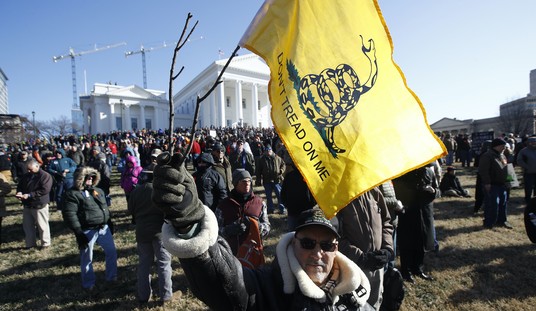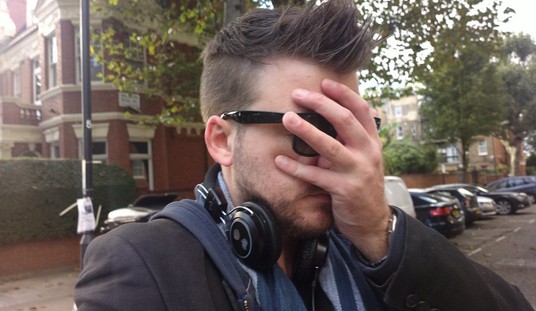You do not currently serve in a monarchical form of government.
You represent only one of the three branches of government, and the other two are equal to yours.
You are not the Supreme Leader, nor are you the king, nor are you the Messiah or dictator or whatever term for a ruler you have convinced yourself that you are.
You see, in the late 18th Century, George Washington and the other Founders decided to create a nation of free men, a republic, as it were, in which men were not ruled by an individual or individuals, but men who determined their own lives and their futures for themselves.
Aside: I am speaking very slowly for you, Mr. President, to be sure you understand, as you are polite enough to do the same for the knuckle dragging citizenry you have to pay attention to from time to time.
The only other kinds of governments that existed in the rest of the world at that particular epoch were monarchies, military governments or dictatorships. The establishment of a republic of free men had never before happened in history, and General Washington and the others fought a war and risked their lives to achieve this extraordinary goal. Well, surprisingly to the rest of the world, and quite frankly to a lot of Americans, it worked. This amazing group of men indeed started the United States of America, where I repeat, men are not told what to do, they make their own decisions. We are a free people and have been for over 220 years.
We could have had a ruler in the United States, were it not for the far-sightedness and devotion to country of our leadership at the time. The greatest of our founders, George Washington, was asked three times, in various forms, to be the ruler, in fact the monarch, of the new United States of America.
When he was first offered the crown of the nascent nation, he responded by saying, “Let me conjure you then, if you have any respect for your country, concern for yourself or for posterity, or respect for me, to banish these thoughts from your mind, and never communicate, as from yourself, or anyone else, sentiments of a like nature.”
The poor fellow was so discombobulated by this reaction that he wrote the General three letters of apology in as many days.
As you can see, this first and greatest of our leaders was horrified that anyone would think that he would accept to rule this republic, and to in effect establish yet another monarchy, no matter how benign. The whole point in his and the others’ extraordinary efforts was to create a true republic, in which, I repeat, all men were free, in which the people are the sovereign. Americans have never been, and never will be, ruled.
Then, after he had against all odds been victorious in the Revolutionary War, he attempted to resign his commission as General in the Continental Army and return to his beloved Mount Vernon. Congress pleaded with him to stay on and lead the nation, in the position of General for Life; he responded with an unequivocal no, and returned to private life at his farm in Virginia.
Subsequently, after having served two terms as President, when he announced to Congress that he was not going to run for a third term, (to them it was unimaginable that George Washington not be the leader of the nation), he was again pleaded with to stay on and lead the nation, this time as President for Life. George Washington again refused, saying that in order to ensure the continuity of this young republic, he wanted to ensure a peaceful transfer of power to his elected successor. To General Washington, the election of the second President of the United States was much more important than that of the first, as that would be the first time in history that such a peaceful transfer of power, then and for the future, would have been assured.
There is a wonderful lesson to be found in this story, Mr. President, actually many more than one, but this will do for now. That lesson can be found in a very important word, and that word is humility.
George Washington lived a life guided by honor, dignity and the loftiness of a higher purpose. He did this in an extraordinary life and in everything he thought and everything he did. That is why he could always leave his cherished Mount Vernon when his nation needed him, leave his family, and have the vision not only to lead an army to a seemingly impossible victory but also the vision to create the first true republic in history.
And then he could give it all up.
George Washington could do this because he cared more about his country and his people than he cared about himself. George Washington could do this because he understood how power really worked, and he made it work on behalf of his country and his people, not caring about, actually not wanting, power for himself. George Washington could do this because, despite his greatness, or perhaps because of his greatness, he was a truly humble man.
If Divine Providence, as he often referred to his God, had destined him to achieve, it was to achieve something greater than himself, something so lofty in its goals that he would give up everything he had to make it happen.
Mr. President, as you can see, in his entire life, our first and greatest President did not pause to think about himself or his own desires, or concerns. More than anything, he cared about his nation and its people, and the freedom he wanted them to be able to achieve through his and the others’ efforts.
So, do you understand in what position you are at this particular point in time? You do not rule, you represent, the people who voted you into office. Ergo, you do what the majority of the American people tell you to do, not the contrary.
Also according to the rules, which unfortunately you and your people do not seem to have had the time to read, (they are found in a document called the Constitution), the peoples’ representatives in Congress do what the American people tell them what to do, and not what you nor they (the Congressional representatives) might regard as what you think is better for them. The reason why you and they (the Congressional representatives) were elected is because the people chose to vote you into power to do what they (the people) determined that you should do on their behalf.
I am sorry to have been somewhat repetitive; I just wanted to make sure that you understood in case I wasn’t going slowly enough.
And you most certainly do NOT tell the Supreme Court what to do, as they are an equal branch of government to yours. These devoted public servants also deserve a modicum of politeness, which you, to your detriment, did not deign to give them. You are not above them; you are in fact not above anyone. You are the peoples’ servant who lives in the peoples’ house.
For a very, very, very short time.







Join the conversation as a VIP Member